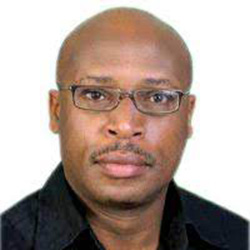South Sudan’s president finally signed the peace deal last week to end a 20-month conflict with rebels. However, despite President Salva Kiir and rebel leader Dr Riek Machar having declared a ceasefire, all may not be quite as smooth moving forward.

South Sudan’s president finally signed the peace deal last week to end a 20-month conflict with rebels.
However, despite President Salva Kiir and rebel leader Dr Riek Machar having declared a ceasefire, all may not be quite as smooth moving forward.
There are genuine concerns it may fall in the pattern that after a series of broken peace deals, implementing the new truce may not be a smooth ride.
This is the eighth. The last ceasefire agreement was in February this year that was broken within a week of signing, followed by an escalation in fighting in April and June.
The disappointment of the broken peace deals must serve to strengthen regional and international resolve to see it through.
World leaders welcomed the deal but warned it must now be implemented.
Susan Rice, President Barack Obama’s national security adviser, said in a statement that the U.S. welcomed the deal as a "first step” toward ending the conflict, but that it would take "hard work” to implement it.
And, Nkosazana Dlamini-Zuma, chairperson of the African Union Commission, was quoted calling on all sides to "scrupulously abide by its terms and faithfully implement its provisions”.
The key word is "all sides”, as the problem may not exactly be between the two main protagonists, Kiir and Machar.
Media reports indicated how some of the top rebel commanders have split from Machar saying the peace deal means nothing to them. They could easily throw a spanner in the works, and could mean no end in the fighting.
This underscores one of the major challenges to the implementation of the peace deal, which will be the disarmament, demobilisation and reintegration of all the rebels.
The government maintains that only Machar’s Sudanese People’s Liberation Army (SPLA) will be integrated into the national army, while some rebels want militia factions to be integrated as well.
Others have rejected the peace deal outrightly. These include rebel groups led by Gabriel Changson Chang of the breakaway Federal Democratic Party (FDP), and Gene Peter Gatdet Yaak, who was dropped from his post of director for operations in Machar’s rebel movement.
There is also President Kiir’s document to regional leaders listing his concerns. Mediators claimed that among some of his reservations was his concern about a demand that Juba becomes a demilitarised zone and conditions that he consults the proposed first vice president Machar on policy after the deal was signed.
"However,” as Susan Rice bluntly put it, "we do not recognise any reservations or addendums to that agreement. We will work with our international partners to sideline those who stand in the way of peace, drawing upon the full range of our multilateral and bilateral tools.”
On its part, the UN Security Council acknowledged that the agreement is the first step in reversing the difficult political and economic situation in South Sudan, including the humanitarian and security catastrophe resulting from the crisis.
Thousands of people have been killed in the conflict, which started in December 2013 and has left many food insecure. About two million of the country’s 11 million people have fled their homes, mostly to neighbouring countries.
To heal the country and prevent further human tragedy, the UN Security Council "calls upon the parties ... to fully implement the agreement”.
The UN statement included a threat to anyone undermining the agreement. It minces no words that it could add additional individuals to a UN blacklist.
The new peace deal proposes a Transitional Government of National Unity, which is expected to be in place by December 1 and govern for 30 months.
During this period, it is expected the Constitution of South Sudan will be put in place, doing away with the 2011 Transitional Constitution.
The widespread international concern, and not least by the eight-member Inter-governmental Authority on Development (Igad) that brokered the peace deal, underlines the situation in South Sudan as more than a neighbourhood watch.
It not only underscores the valued place of the country in the world, but also the dignity of its people to live free of violence at the hands of their leaders.


